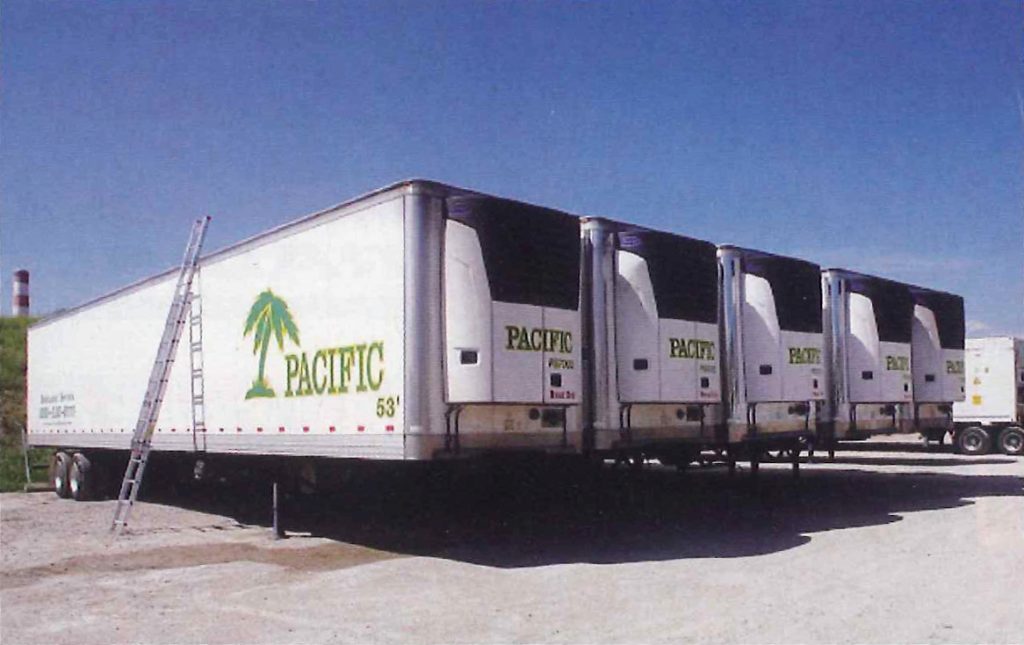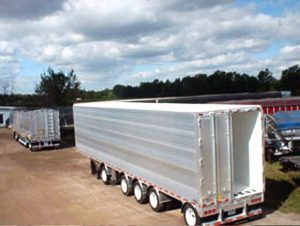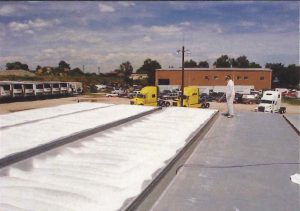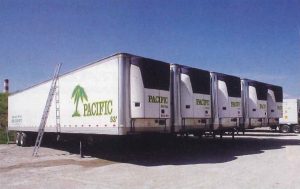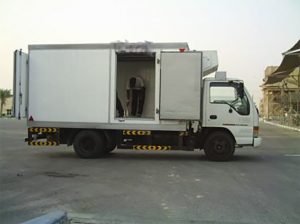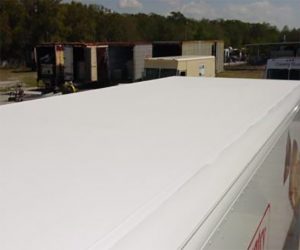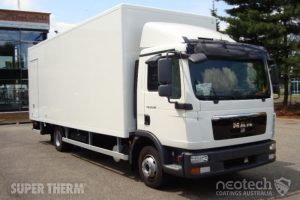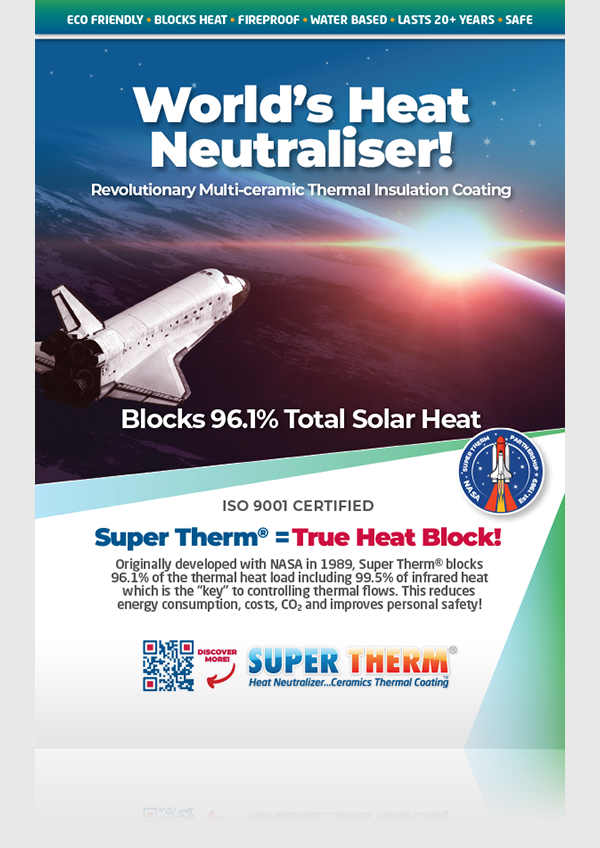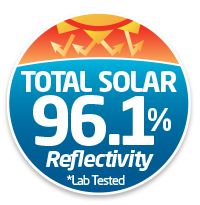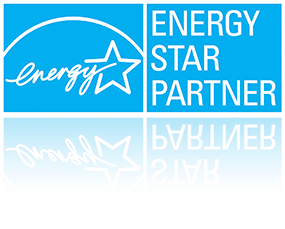Cold & Cool Storage Solutions
Need management of cool storage challenges? We have a great range of solutions and systems of coatings to help tackle many industry challenges and problems.
- Energy Reduction
- Frozen / Chilled
- Fresh Food
- Heat Blocking
- Refrigeration
- Transport
- Warehousing
Protect Reefers – 30% fuel reduction
Land Line Magazine – The Business Magazine for Professional Truckers – July 23, 2003
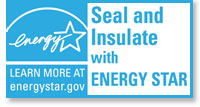
Industrial Coatings Alliance Group Inc. is an international consultant, distributor, application and maintenance company of roof coatings and roofing systems. Headquartered in Roswell, GA, ICAG is a charter member of the EPA’s Energy Star Roof Coatings Program and is a leader in researching and implementing energy conservation roofing programs for various prominent business owners. With more than 5 million square feet of roofing surface coated, as well as more than 30,000 over-the-road trucking trailers, ICAG is recognized as a leader in roofing solutions.
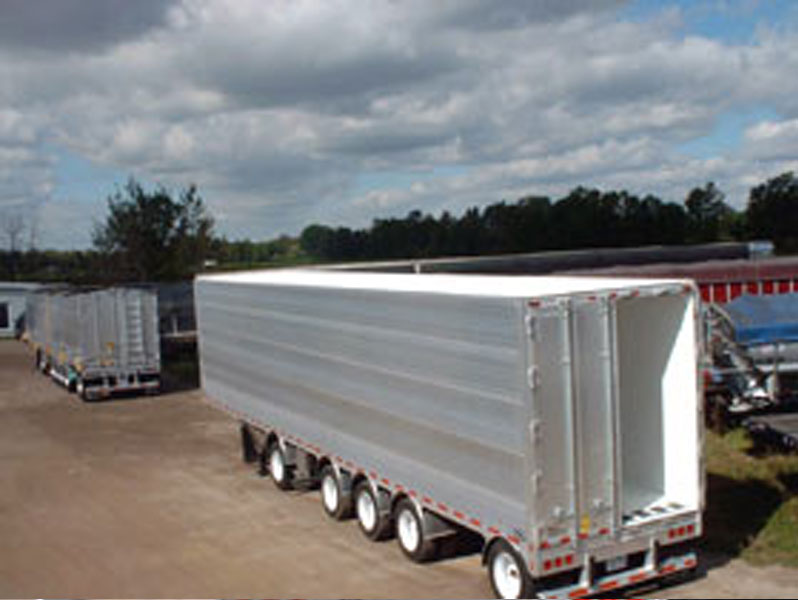
While most roofing systems are merely a means of keeping the weather out, ICAG’s coating and roofing systems will provide superior heat blocking qualities, structural protection and aesthetics that will significantly lower utility cost, provide maintenance benefits and enhance the aesthetics of the facilities and/or vehicle. Our research indicates that energy reduction alone provide an extremely favourable payback period making the application a viable financial option.
Industrial Coatings Alliance Group has recently tested its proprietary solar heat block coating with one of the nations largest private refrigerated carriers. ICAG is pleased to announce that Super Therm®, its proprietary coating, when applied to the top of a refrigerated trailer, can reduce the units fuel consumption approximately 30% versus a multi-temp refrigerated unit with traditional aluminium roofs.
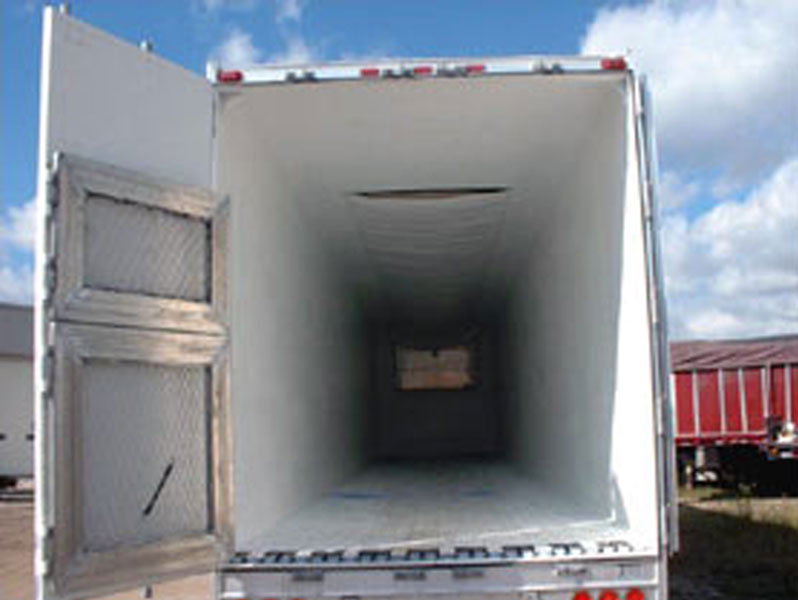
The test began in July 2002. Super Therm® roof coating was applied to five multi-temp reefers in Tolleson, Arizona. This facility was chosen due to the extreme amount of radiant heat that refrigerated units were exposed to daily, on mostly a year-round basis.
The “Control Group” consisted of five multi-temp trailers with traditional aluminum roofs. A third group of trailers, five multi-temp trailers coated with the trailer manufacturer’s proprietary heat-resistant composite roof, was included in the test as well. All 15 units were 2001 model year and manufactured to identical build specifications, with the exception of the addition of the heat-resistant composite roof by the manufacturer.
The primary area of focus for this test was on fuel economy; would the Super Therm® coated reefers burn less fuel than the control group and even the group with the heat-resistant composite roofing system. In addition, would the difference in fuel consumed justify the cost of the product?
After gathering and analysing test results for the months of July and October, ICAG is pleased to announce that Super Therm® not only met, but also exceeded the expectations of the private refrigerated carrier.
Super Therm® solar heat block coating saves fuel for food-hauling fleet
- Super Therm® cool-down time was cut by 1.75 hours or 44%
- 20% less fuel on the outbound “hot” haul
- 29% less fuel on the return “cold” leg
- Long-term reduction at 200 to 250 trips a year, the benefits could total $2,500 times by 20 years $50,000.
Pacific Shipping & Trucking of Denver moves truckloads of baked bread from Denver to Phoenix, then returns to Denver with ice cream, explains Keith Robertson, the fleet’s owner and president. Bread is maintained at (27°C) 80°F, but ice cream must stay frozen at (-28°C) -20°F – “extreme heat to extreme cold,” he says. It’s a drop-and-hook operation, with trailers full of bread left at docks in the usually hot southern Arizona city while empty reefer trailers wait nearby.
A driver backs his tractor onto an empty, then starts the reefer unit to begin cooling down the trailer’s interior so it can take on ice cream. Temps inside the trailer can be (48°C) 120°F or more, and it’s got to be cooled to below zero. “It was taking us two and a half hours to get sitting out in the sun to get to minus 10 – from there they can start loading – then,” Robertson says. “Now it takes 45 minutes to an hour,” so the reefer runs less and burns less fuel. > Read More >
30% less fuel consumption
In July, the Super Therm® coated units burned 30% less fuel than the “control” units and 20 percent less than the manufacturers heat-resistant composite units. On an annual basis, this resulted in decreased fuel consumption of 1,039 gallons and 463 gallons respectively. At $1.10 per gallon of gasoline, the cost reduction were $1,143 and $509 per unit.
In October, the Super Therm® units burned 27% less fuel than the “control” units and 22 percent less fuel than the manufacturers’ heat-resistant composite roofing system units. On an annualised basis, this resulted in decreased fuel consumption of 599 gallons and 435 gallons respectively. At $1.10 US per gallon, the cost reductions were $659 and $479 per unit. Per our test, we can expect that benefits would be highest in the summer months, lowest in the winter months and average in fall and spring months.
Payback in less than 1 year
With product cost and installation cost considered, a payback could be expected of less than one year. These reduction estimates do not include maintenance benefits which would likely result from the refrigeration unit running less hours, or running a higher percent of hours in low speed versus high. This would, in theory, also extend the life of the refrigeration unit. In addition, benefits associated with a decrease in labor that would result from fueling the reefers less often is not included in the cost benefits.
Reduction in maintenance and labour costs
Industrial Coatings Alliance Group Inc. believes that this coating system is consistent with private and for-hire refrigerated unit carriers goal to provide superior service to their customers and staff while improving the bottom line of that company through significant cost reductions. > Read More >
Reduction fuel and produce in transportation
Bob Fountain Transport Brisbane, Australia
During the latter part of 1989, I heard about a product called Super Therm® which was supposed to be able to reduce inside temperatures.
Being the owner of a fleet of primer movers pantech and tautliners I have continual problems with heat buildup in the tautliners which are primarily used to cart bananas from Northern New South Wales to Adelaide. Temperatures are frequently around 35° up to 50°C. in mid-summer. This heat buildup causes the produce to rot and at times the loss rate could be as great as 15%. Bananas need to be carted at between 10°and 13°C but the tautliners with refrigeration units running constantly would run at a constant 19°C.
Although a little skeptical about any real benefits of Super Therm®, I decided to test the product with the following results:
- Inside the tautliner: when it is standing empty, it is noticeably cooler than a unit without Super Therm®.
- The motor on the refrigeration unit is set at 10°C. (normal temperature for carting bananas at that time) will in fact idle, hence a reduction in fuel costs to run the unit.
- The reduction in temperature due to Super Therm® has eliminated produce losses which of course was my prime concern, the added fuel reduction being a bonus.
To anyone considering having Super Therm® applied to their pantech or tautliner, my comments could only be to delay the application is to waste money.



